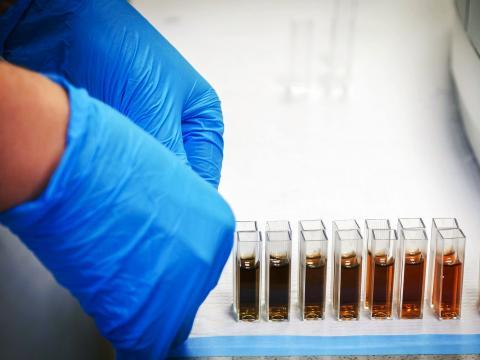
BMC Seminar Thursday 6 February, 12:00 in Læknagarður, Vatnsmýrarvegur 16, room 343
Speaker: Prof Óttar Rolfsson, Center for Systems biology, Faculty of Medicine, University of Iceland.
Title: Plasma Metabolomics Profiles Associated with Endothelial Health and Dysfunction and their Influence on Endothelial Cell Metabolism
Abstract: Endothelial dysfunction (ED) contributes to various diseases of the vasculature by influencing blood pressure, clotting and transport of fluids, nutrients and immune cells. Metabolic phenotypes associated with ED are not well characterised due to difficulties in assessing endothelial metabolism in situ. To address this, we recently built a cell scale metabolic network model of endothelial metabolism (iEC2812) and applied it to infer endothelial metabotypes from sepsis patient plasma metabolomics data. These highlighted changes to endothelial glycan metabolism. We hypothesized that endothelial glycocalyx maintenance contributes to endothelial dysfunction and updated our model (iEC2997) to more accurately account for endothelial glycocalyx synthesis and biomass. We then analysed, i) plasma metabolomics data from 20 trauma patients vs. 20 controls and ii) ASGR1del12 carriers vs. controls using iEC2997 to identify reactions associated with both dysfunctional and above normally healthy vasculature, respectively. Flux into the hexosamine biosynthetic pathway was altered in both cases. To verify this effect, we titrated HUVEC monolayers with catecholamines. Increased permeability and glycocalyx loss was verified by TEM, immunostaining and by permeability assays. UPLC-MS metabolomics analysis showed a drop in the intracellular concentrations of the glycan precursors UDP-glucose and N-acetyl-glucosamine. Extracellular measurements along with 13C-UL-glucose and 15N2-glutamine flux analysis supported lower turnover of glycocalyx intermediates and lower glycolytic and TCA cycle flux. In summary, metabolic network analysis of three independent plasma metabolomics datasets highlighted the importance of glycan synthesis to endothelial health. Induction of endothelial dysfunction in vitro is accompanied by compromised glycan synthesis.
